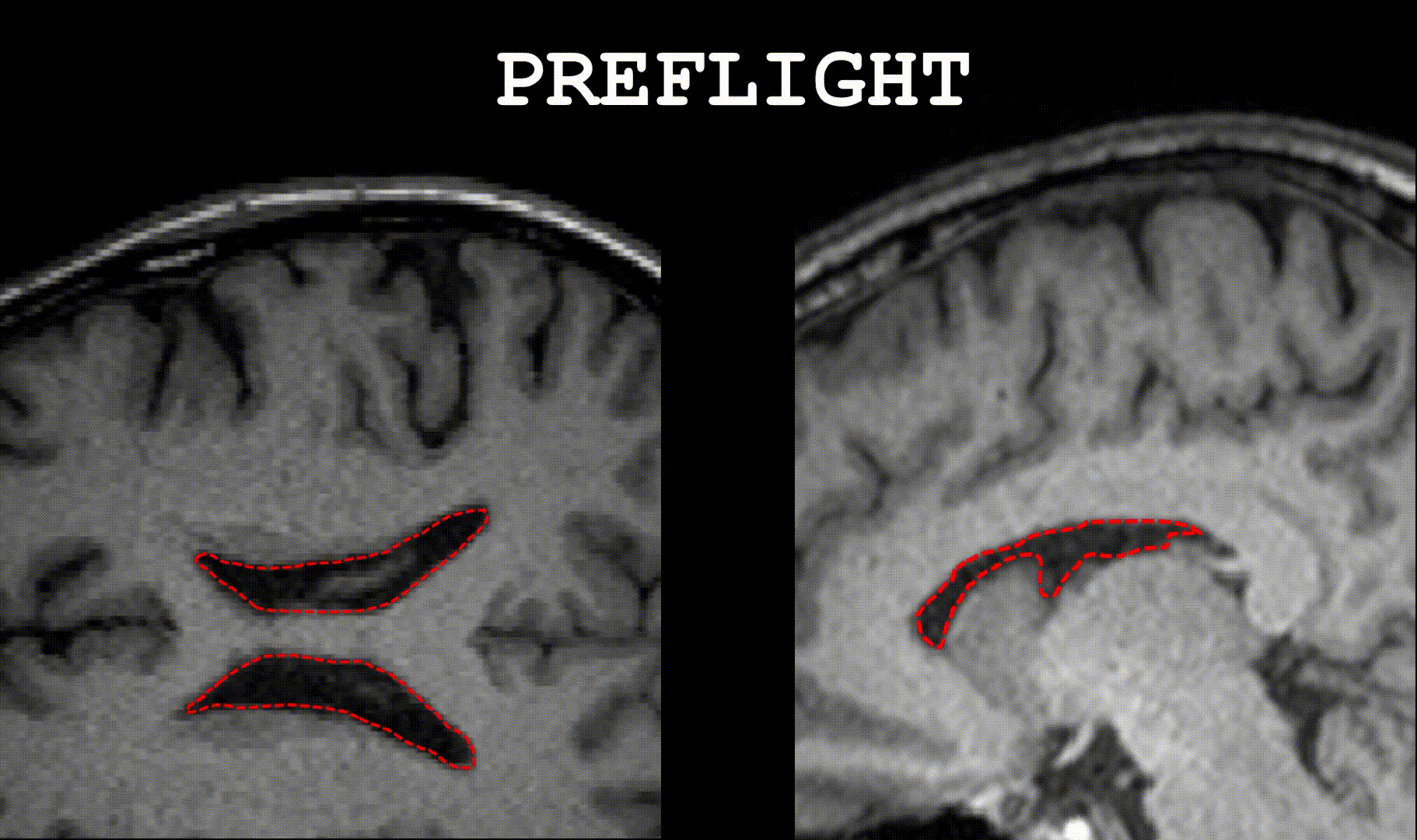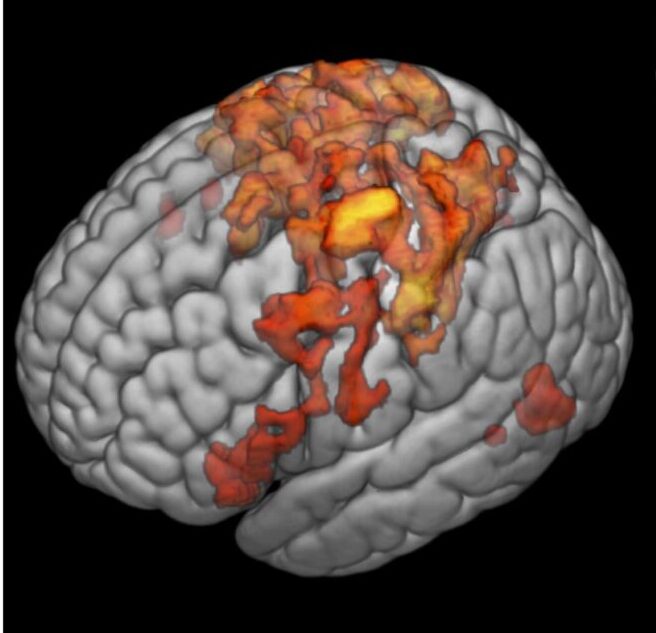THE QUESTION:
How do we get humans to Mars and safely back home?
It’s been about 60 years since the first humans went to space, and about 20 years of astronauts continuously living on the International Space Station (ISS). Our next plans include longer ISS missions and deep space trips, like
travel to Mars.
We know that
spaceflight negatively impacts the human body. For instance, folks come back with dizziness, eye problems, and difficulties walking and balancing. We think that the brain plays a role in some of these symptoms. However, very few studies have measured how the brain might change with spaceflight.
MY WORK:
I am using MRI to study structural and functional brain changes with spaceflight.
With Dr. Rachael Seidler and collaborators from NASA and elsewhere, we’re using magnetic resonance imaging (MRI) to measure how brain structure and function change with spaceflight, and recover after return to Earth. Recently, I first authored a review paper about why this is important and various considerations for this type of work.
WHAT HAVE WE FOUND SO FAR?
Some brain changes do not recover for 6+ months after return to Earth.
My first paper compared brain changes in astronauts who spent 6 months vs. 1 year on the ISS. In some cases, (as we anticipated) structural brain changes were larger after 1 year on the ISS compared to 6 months.
We also found that the ventricles (i.e., spaces that hold fluid in the brain) expand from pre- to post-flight, by greater than 20% for some astronauts. Ventricles also expand with normal aging; however, these spaceflight changes were much bigger than regular aging. Moreover, the ventricles still had not returned back to their normal size by 6 months post-flight. Right now, we’re not sure what this means. For instance, we don’t know if ventricular expansion could be contributing to eye problems (aka SANS) or post-flight performance declines. Our future work will continue sorting this out.

WHAT ELSE AM I WORKING ON?
Spaceflight changes vestibular brain function.
Another part of my work uses functional MRI (fMRI)
to study how spaceflight might alter the ways the brain processes vestibular information. The vestibular system
helps us orient ourselves, coordinate our movements, and maintain our balance — which are all abilities that can be affected by spaceflight.
First, I studied how long duration bed rest affects the neural processing of vestibular stimulation. That is, we asked folks to lay in bed for 30 days straight(!) with their head tilted down to mimic some of
the effects of spaceflight on the body, like fluid shifts towards the head, unloading of the legs, and elevated carbon dioxide. We found various changes to vestibular processing and relationships of brain function changes with
mobility declines. We think this is sensory reweighting – or the brain changing how much attention it pays to different sensory inputs after long exposure to spaceflight environments.
Our next step was to study this if something similar happens in astronauts. In one of the first-ever fMRI studies of astronauts, we applied vestibular stimulation and measured brain activity at 6 times
pre- and post-flight. Similar to bed rest, we found that the brain changes how it processes vestibular information with spaceflight — it seems to require “extra processing power” to handle the (altered) vestibular
inputs in microgravity. These brain changes don’t resolve immediately after return to Earth; it took more than 1 month post-flight to recover. Additionally, these brain changes were correlated with balance
declines from pre- to post-flight — suggesting that this functional sensory reweighing affects astronauts’ performance abilities.
Overall, understanding more about changes in brain function with spaceflight and relationships with performance will help us figure out how to keep astronauts safe and performing optimally during long
missions and after their return to Earth.
WHAT’S NEXT?
Studying longer missions and how to prevent or slow detrimental changes to the brain and performance.
Right now, we’re looking at the effects of spaceflight on other aspects of brain structure and function, as well as spaceflight effects on cognitive and sensorimotor performance.
We’ve also recently completed a study testing how an artificial gravity intervention (i.e., a big centrifuge) may be useful in mitigating brain and behavioral changes with bed rest. This will help us determine whether artificial gravity is something we should pursue when imagining future living conditions in space.
Other next steps include new grant funding to study brain changes in additional astronauts scheduled for year-long ISS missions. This will be critical for helping us preserve astronaut health on even longer missions to Mars.


